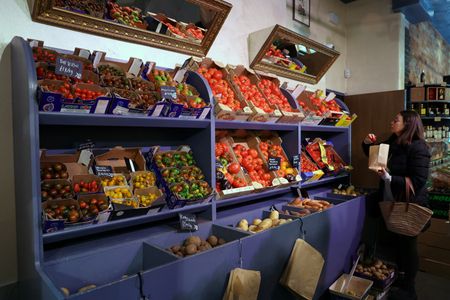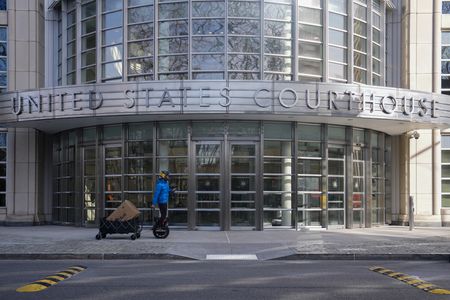LONDON (Reuters) – Britain has delayed implementing post-Brexit physical checks on so-called “medium risk” fruit and vegetables imported from the European Union for a further six months, the Department for Environment, Food and Rural Affairs (Defra) said on Friday.
Britain voted to leave the EU in 2016 but, such was the scale of the task to untangle supply chains and erect customs borders, that it is only this year setting new rules.
The first phase of Britain’s new border model, requiring additional certification, came into force on Jan.
31. A second phase started on April 30, introducing physical checks for products such as chilled and frozen meat, fish, cheese, eggs, dairy products and certain cut flowers and seeds.
However, physical checks on fruit and vegetables have been delayed several times and have now been pushed out from January 2025 to July 1, 2025.
“Such products will not be subject to import checks at the GB border or charged the associated fees until this date,” Defra said.
“This easement is a temporary measure to ensure that new (Labour government) ministers have a full and thorough opportunity to review the planned implementation of further border controls, and an opportunity to listen to businesses across import supply chains,” it said.
The new checks will add costs of 200 million pounds ($263 million) to the fruit and vegetable industry, according to industry body, the Fresh Produce Consortium, which has warned of higher prices for consumers.
Defra also said that seven commodity groups, including apples and pears, would be recategorised from “medium risk” to “low risk”, allowing these goods to move freely into Britain from the EU from Jan.
30, 2025.
($1 = 0.7609 pounds)
(Reporting by James Davey)











